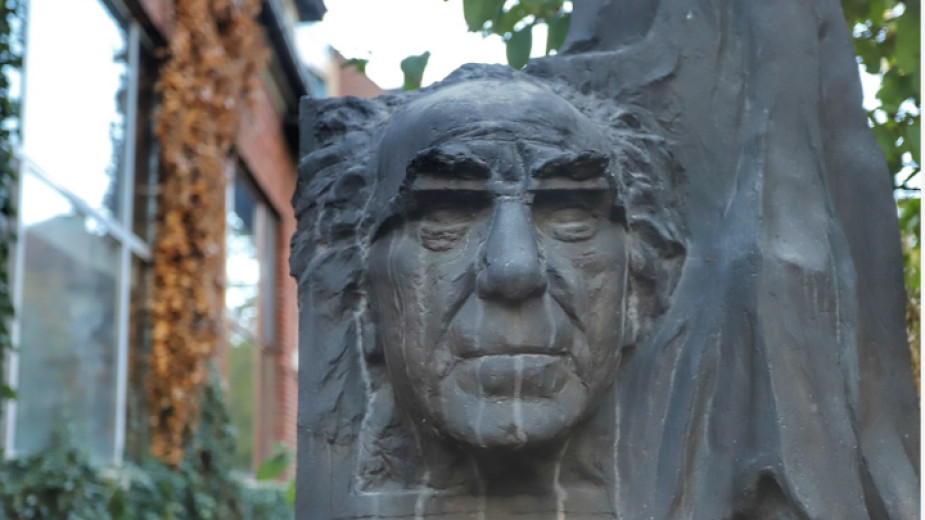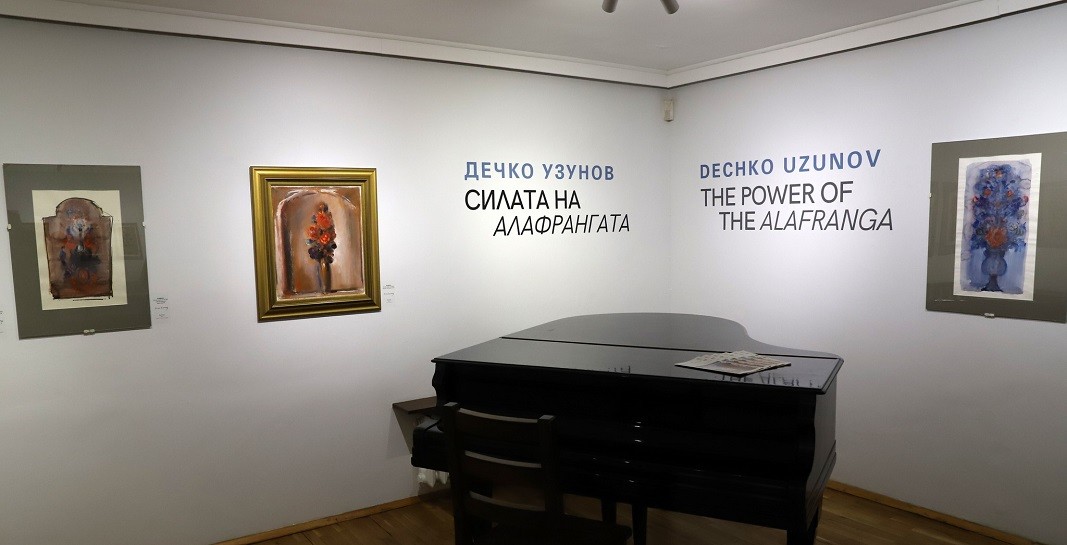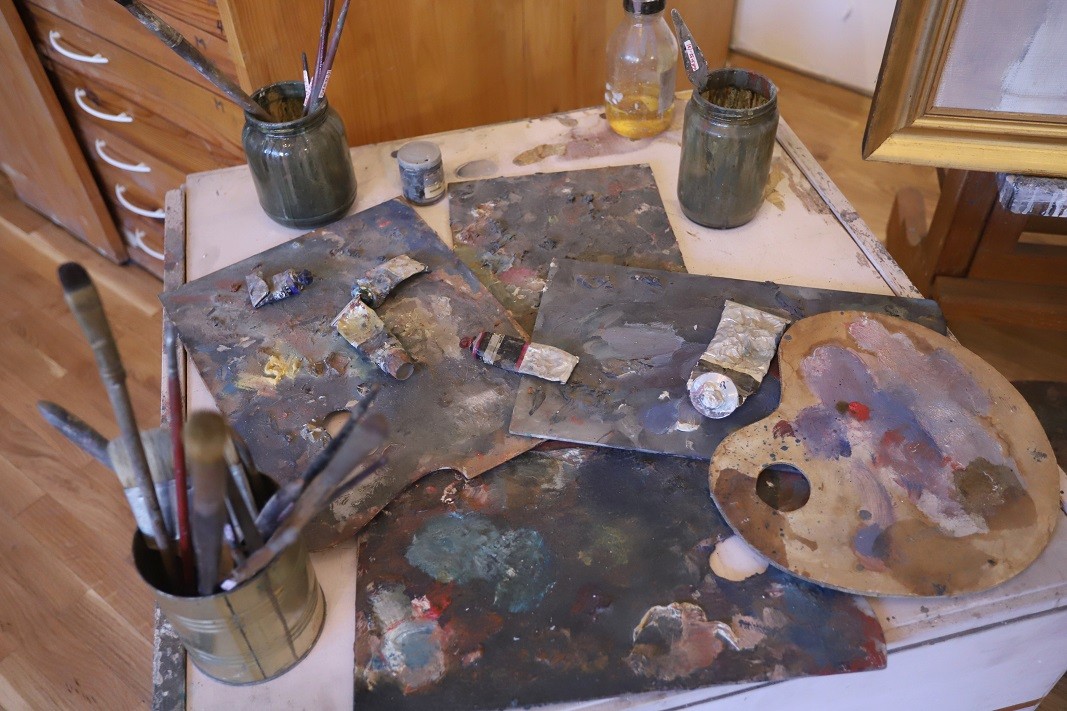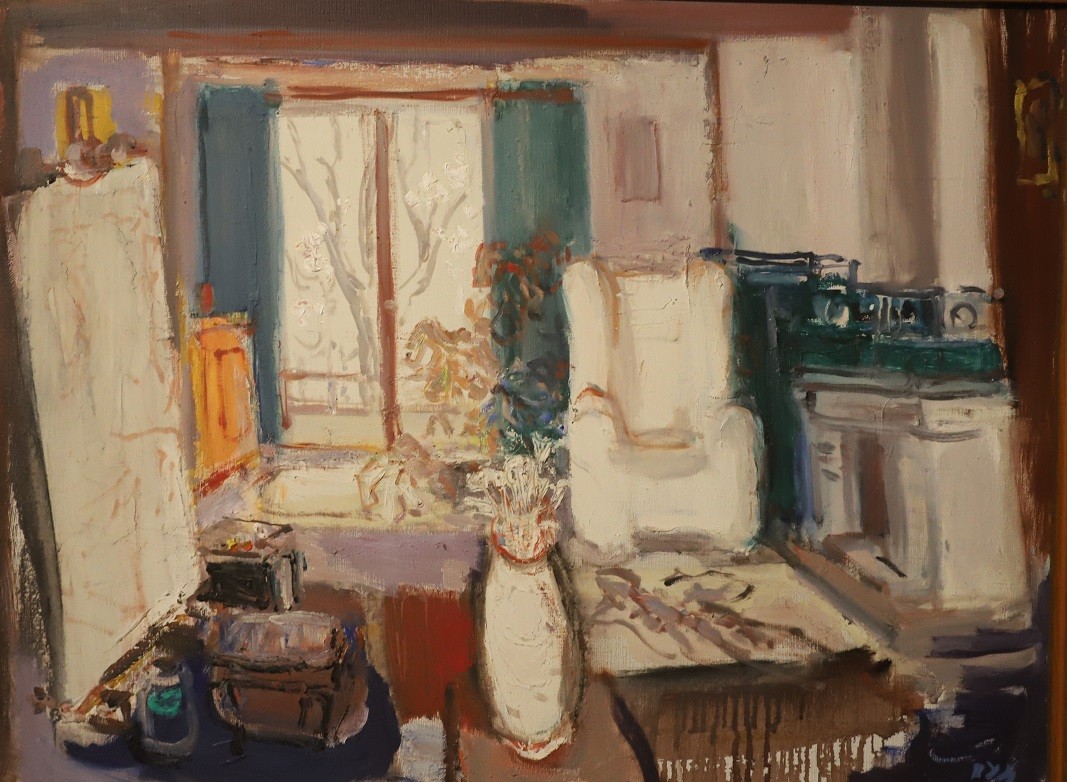 7
7
“Art is something without which there can be no culture, no development, no civilization even. Without art life would be empty, without beauty, without bliss, it would be a poorer life. I prefer to be an artist than president,” says one of Bulgaria’s most prominent painters Prof. Dechko Uzunov (1899-1986).

It is 124 years on 22 February since the artist’s birth, which gives us reason to pay a visit to the Dechko Uzunov museum-gallery, housed by what was once his own art studio. The gallery keeps 13,000 of the artist’s works, many of them drawings, sketches and all kinds of different projects.

Portraits were central to Dechko Uzunov’s work as an artist, having painted some absolute masterpieces at the very outset of his career. One of them is known as “White Masalitinov” – a portrait of actor Nikolai Masalitinov that is compared with the most sophisticated abstract pictures of the age. The method used – white on white – is considered the most difficult thing in painting. And his “Portrait of a child” is considered to be in a class of his own, that is why he was proclaimed the best portrait painter of his time.
Dechko Uzunov traveled to Paris and met with Picasso, received a diploma from the 1937 international exposition and from the Vatican for the frescoes on the Bulgarian pavilion there. By 38, Dechko Uzunov was already a university professor and chairman of the Union of Artists. His paintings were being shown in Berlin, Munich, Nuremberg, Vienna, Athens, Thessaloniki, Budapest, New York, Venice. In his own country he was elected rector of the Arts Academy.
After Dechko Uzunov’s death in 1986 his heirs gifted a large collection of paintings to Sofia municipality, and on the basis of these works a museum named after him was created. “In the studio he actually painted on the second floor, on the first floor of this house he always had a small exhibition of his works. It was a place where friends would get together on various occasions,” says Adelina Fileva, director of the Sofia City Art Gallery:

“If you go to the studio right now, you will see a grand piano there for the musicians, everything was very artistic. In 2016 the studio was handed over to the Sofia City Art Gallery which has been running it since then. So, we decided then we should take care of the place. We developed several programmes, so that there would be different artistic events at least once every three months, so audiences can see and feel Dechko Uzunov and his work. On 22 February we always have an exhibition of his works.”

Dechko Uzunov has gone down in history with his paintings, but also with other art forms like illustrations and drawings, still lifes and historical canvases, and even monumental and decorative paintings. The frescoes inside the St. John the Baptist church in Kazanluk are his handiwork, as are the wall paintings inside the National Opera House, the National Theatre, the National Palace of Culture, and some of the stained glass windows of the Sofia Court House. He has also illustrated books and has created sets and costumes for theatre and ballet,” Adelina Fileva says and adds:
“Dechko Uzunov lectured at our Arts Academy, and was chairman of the Union of Artists, he also headed the international artists’ department. He was then invited to become president and later – honorary president of the International Association of Art, an official partner of UNESCO and he remained at that post for a very long time. He was widely-traveled and took part in various expositions. Works of his are on display in galleries across Western Europe and in the Balkans. In their youth the artists of his generation were in constant contact with one another and exchanged a lot of paintings. That is why Dechko Uzunov is one of Bulgaria’s best-known artists abroad.”

Gergana Mancheva
Photos: BGNES-archive, Facebook/Dechko Uzunov museum-gallery
The ninth edition of the initiative Poetry in the Metro opens today and lasts until 23 December. The project was initiated by the Polish Cultural Institute in Sofia. It includes poems by 20 European writers. They will be displayed on panels..
Awakener/enlightener - a person who, through his actions, ideas or creative work, awakens the spirit of the people, preserves and spreads national identity, culture and education. In Bulgarian history, this term is most often associated with the period of..
For the twenty-third year, the Bansko Film Fest team will take the audience to some of the most extreme corners of the world with 75 films from 39 countries . ''All of them are premieres, and for some of them, the screenings in Bansko will be..

+359 2 9336 661
